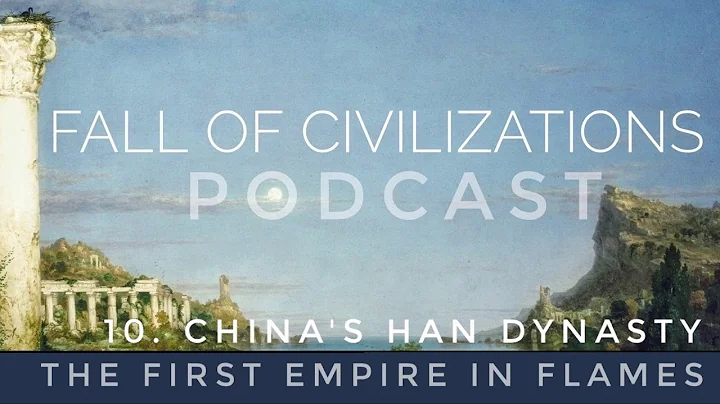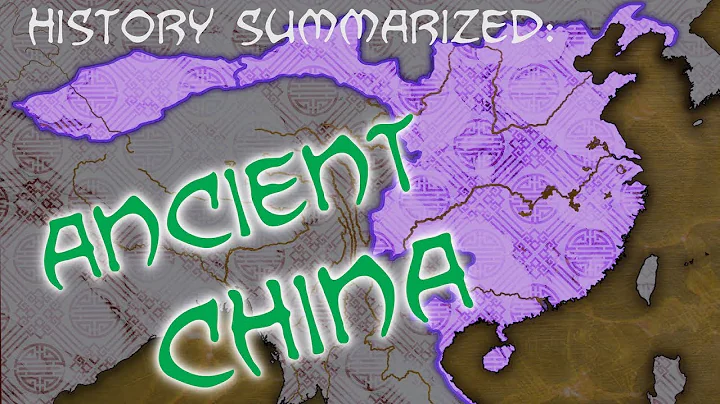The war between the northern nomads and the Central Plains Empire is a major theme in ancient Chinese history and a major test for the Central Plains Empire. An empire that fails to handle this relationship well will, at best, bring a heavy economic burden, or at worst, be directly invaded and destroyed. In Chinese history, the Western Jin Dynasty, Song Dynasty and Ming Dynasty all died directly from the invasion of northern peoples.
Why have nomadic civilizations and agricultural civilizations been at war for thousands of years?
Most people look at wars just like watching football matches. They only look at winning or losing. They feel happy when they win and sigh when they lose. This view of war ignores one important thing: fighting costs lives and money. The essence of war is a competition of national strength and a game of mutual destruction. However, it’s impossible not to work hard. The war is related to the survival of the country. Once defeated, nothing will be lost.
Some people may ask, since war is a game of mutual destruction, why would someone start a war?
Although from the perspective of mankind as a whole, war is a negative-profit behavior, from the perspective of the war initiator, war may be cost-effective. As long as the benefits outweigh the costs, there is reason to go to war.

Emperor Wu of the Han Dynasty made several expeditions to the Xiongnu and fought several victorious battles that will go down in history. What were the costs and benefits of these wars? The cost of
is staggering.
One of the reasons why Emperor Wu of the Han Dynasty won was that he organized a cavalry force that was larger than the Huns. Emperor Wu of the Han Dynasty spent a lot of money on his 450,000 horses.
The consumption of horses in the war was astonishing. In the biggest victory of Emperor Wu of the Han Dynasty, when he defeated the Xiongnu, the Han army dispatched about 140,000 horses and lost about 110,000 horses. If a great victory has been lost like this, how can we fight an ordinary war? After the war, the nomads went back to find a pasture and raised them for a few years, and then all the horses came out again. When your Han army returns to the Great Wall, you will have to spend huge sums of money to raise horses again. Can you afford it?
What's even more frightening is that the cost of the Han army's penetration into the north is too high.

Farming areas are economically prosperous, but farmers are tied to the land and can't go anywhere even if they want to. Therefore, when nomads invade, they can loot all the way to complete supplies. Even when they retreat after losing a battle, they can loot all the way back.
On the contrary, the productivity of nomadic areas is low, the population is very sparse, and an extremely vast grassland cannot support many livestock. When a large agricultural expeditionary force arrives on the grassland, it cannot be supported by robbery alone. Moreover, nomads can also move with their families. When they hear that the Han army is coming, they just stay away early. The Agricultural Expeditionary Force can only rely on the supplies they bring with them. Emperor Wu of the Han Dynasty chose a very expensive method: let the expeditionary army carry hundreds of thousands of supply troops with him.

The problem is, these hundreds of thousands of people also need to eat. Therefore, Emperor Wu of the Han Dynasty solved the supply problem by spending hundreds of thousands more manpower and food rations. Transportation costs were extremely high in ancient times. According to the records of Sima Qian, the cost of transporting food to the southwest border in the Han Dynasty was as high as more than sixty times. During the Qin Dynasty , the cost of transporting grain from Shandong to Inner Mongolia was more than 190 times higher. Emperor Wu of the Han Dynasty's northern expedition was farther away, the journey was more difficult, and the transportation cost was higher. Even if calculated at sixty times, this meant that Emperor Wu of the Han Dynasty would have to throw at least tens of millions of grains into the desert at once. . This number was too terrifying. The total population of the country at that time was only tens of millions.
Emperor Wu of the Han Dynasty spent so much money on war, but did he get the results he wanted?
The reason why Emperor Wu of the Han Dynasty organized an expeditionary force to go deep into the desert was to completely eliminate the Xiongnu, prevent nomadic tribes from invading again, and maintain long-term peace and order on the northern border. If this goal can really be achieved, the money spent is really worth it-compared to the money spent on building the Great Wall and sending troops to garrison, the cost of the expedition is nothing.

However, just seven years after Emperor Wu of the Han Dynasty won his greatest victory, the Huns made a comeback.
Why couldn't the Han army completely wipe out the Xiongnu?
The direct reason is that the north is too big, and the nomads are good at migrating. As long as they temporarily avoid the blades of the Han army, and wait until the Han army retreats, they can find a fertile grassland to restore their vitality. So why did the Han army retreat? Why not occupy the land that we finally conquered permanently?
The question is, what do the troops stationed on the grassland eat?
The reason why the nomads graze their cattle instead of farming is because the northern grassland has little rainfall and can only grow pasture and cannot farm at all.
Some people may say that it doesn’t matter if you can’t farm. You can also make a living by eating cattle and sheep like nomads.

Don’t forget, raising cattle and sheep on pasture requires a huge area of pasture. When livestock eat in one place, there is not enough grass and they must move. Therefore, it is difficult for livestock herders to establish a settlement on the grassland.
Some people may say that if it cannot be established, it cannot be established. Then we simply let the northern army move around like nomads, living in grass and grass, and raise a powerful cavalry to defend the southern farming empire. Wouldn't this be more powerful? ?
The question here is, if you are an army general responsible for defending the border, you have a large group of powerful cavalry, a large herd of cattle and sheep, you don’t ask for food and drink, and you are far away from the court, why don’t you rebel and become independent?
The reason why society under the county system is not as easy for local governments to become independent as society under the feudal system is because under the county system, the court directly manages the people at the grassroots level and controls the household registration of each person. In this way, it is difficult for local governments to withhold Taxes from the people. The imperial court personally appointed and dismissed local officials, frequently changing appointments, and officials from multiple systems supervised each other. Only with these measures could we ensure that local forces did not escape the control of the imperial court.

As for a wandering nomadic tribe, the court may not even know where the people are, so how can they keep track of each citizen’s household registration? How to send officials to supervise? In history, in ancient China, there were some armies that migrated north into the grasslands. After migrating for a period of time, they gradually became nomadic people and were completely separated from the influence of the Central Plains imperial court.
Similarly, when nomads occupy farming areas for a long time, in order to obtain more wealth, they will naturally choose farming production methods. As a result, the economic level will increase, but the military combat effectiveness will decrease, and they often cannot defeat other nomads who are rising in the north. . Typical examples are Northern Wei , Xixia , Liao, Jin...
In short, no matter how much Emperor Wu of the Han Dynasty spent, it was impossible to completely eliminate the Xiongnu.
A few years after Emperor Wu of the Han Dynasty won a great victory, the Huns made a comeback. Emperor Wu of the Han Dynasty had to reorganize an expensive army and fought several wars with the Xiongnu. In these wars, the Han army basically did not take advantage: several times they returned without success because they could not find the enemy, and twice the main force was completely annihilated, and even the commander-in-chief surrendered to the Huns.
After these failures, Emperor Wu of the Han Dynasty publicly issued the "Edict of Sin", reviewing his aggressive military strategy and stopping the use of troops against the Xiongnu.

No matter what people do, they will face two considerations at the same time: cost and benefit. Countries are the same as people. A qualified monarch's duty is to strive for the greatest interests for the country and to choose the national policy with the greatest net benefits.
Take the territorial issue as an example. Some of us may feel that the value of territory is above all else and we must defend it at all costs, regardless of cost. But for an emperor who cares about net benefits, the question he considers is: Are the benefits of occupying this territory greater than the costs? If the benefits are too small and the costs are too high, it is better not to take advantage of them, otherwise it will be a needless waste of people’s money and money.
This is the logic behind Han Hungary and pro .
If you had the ability to invade the Han Empire, who would be willing to surrender? If they had the ability to destroy the Xiongnu, who would be willing to give the palace maid to others for nothing? Precisely because both the Xiongnu and the Han Empire discovered that in this game of costs and benefits, the benefits of peace were far greater than those of war, they all had the opportunity to sit down and talk.

(Lin Xinhao/Text)





















